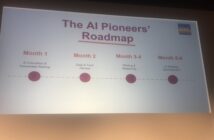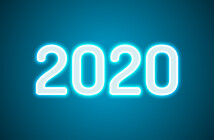Elearning is no longer about courses, according the Serious Elearning Manifesto published by a group of leading elearning practitioners.
The manifesto was written by Michael Allen, CEO, Allen Interactions, Julie Dirksen, consultant and instructional designer and author of Design For How People Learn, author and consultant Clark Quinn and consultant Will Thalheimer.
When you read the group’s definition of elearning you could be forgiven for thinking it is a list describing how humans learn. That’s what it is. The only problem for elearning is that it is a thirty year industry built on click-through courses.
This is the group’s definition of ‘serious’ elearning:
- Performance focused
- Meaningful to learners
- Engagement
- Authentic contexts
- Realistic decisions
- Individualized challenges
- Spaced practice
- Real-world consequences
The launch of the manifesto has had mixed reactions. L&D blogger and thinker Donald Clark criticised the manifesto for not being radical.
I don’t fault the ideas presented but I honestly think, as one tweeter said, that it was all ‘a bit melodramatic’, and although we were promised something radical, what we got was, in the words of a tweet from Nick Shackleton Jones, something that reminded us ‘of the things we were saying 10 years ago’. A ‘manifesto’ suggests something new and radical, not a rehash of ideas that have been around for many, many years. There was not a single idea here that was new or even surprising. It was all a bit ‘is the Pope a Catholic’.
Workplace learning consultant Clive Shepherd supports the manifesto as a way of helping elearning change its ways.
So what is the problem with self-study e-learning? Well, if you go to the awards ceremonies and you read the case studies, you’d think the medium was flourishing. That’s because there is some wonderful e-learning being produced which achieves fantastic results, not just in terms of efficiencies but meaningful, engaging learning experiences. From my base here in the UK, I have been especially pleased with what we have been able to produce on this small island, at least now and again.
The problem is that, although there are gems, there is just too much dross. You won’t find this out by talking to learning managers or producers, but lower level learning professionals and learners themselves will tell you all too readily. They hate that stuff which makes you feel like you are drinking from a fire hose, with it’s endless abstractions, irrelevant graphics and patronisingly simple interactions. And, be honest, you’d think that too, if you had to use it yourself (I bet you don’t).
Responding to Shepherd’s comments, head of online learning at BP Nick Shackelton-Jones, said it was time to move on from elearning:
I also think it’s time to move on, and talk about things that are working, none of which are eLearning. Otherwise, the perception that we have nothing to offer will look increasingly justified.
The manifesto has sparked a debate. But will it change the way vendors and L&D teams think about elearning?



